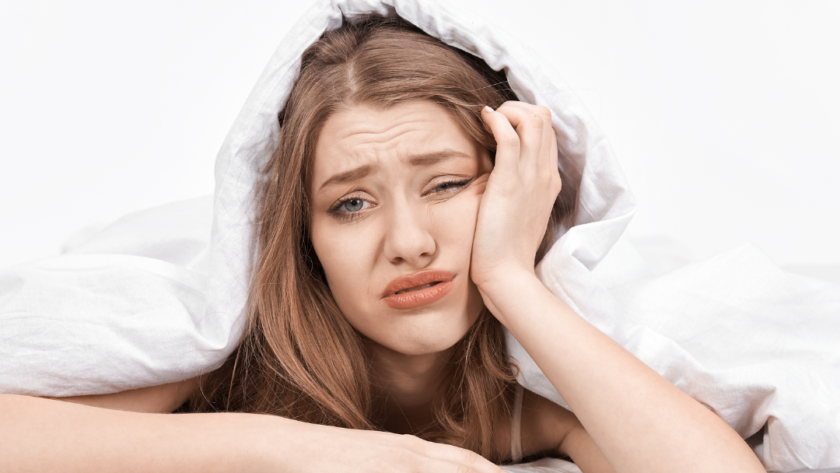Sometimes, your recurring sleep problems may not be a result of stress, poor sleeping habits, overeating, or other typical reasons. In some cases, your sleep troubles may be a result of something you least expect—your hormones.
Your hormone levels can affect your sleep. Conversely, sleep deprivation can also affect your hormone levels, which is why you should get adequate sleep to balance your hormones.
Below, we have highlighted the relationship between sleep and hormones. Plus, we talked about the effects and possible treatments.
What are Hormones?
Hormones are chemical messengers that control different functions in your body. They carry messages through your blood to your organs, skin, muscles, and other tissues.
The body needs different types of hormones to function optimally. These hormones are secreted through the endocrine system a system consisting of organs and glands found in the body system. Hormones influence several body functions, including:
- Sleep-wake cycles
- Heart rate
- Body temperature
- Sexual function, drive, and reproduction
- Blood pressure
- Growth
- Metabolism and appetite
Sleep affects the function and production of hormones. The same with other body functions like blood pressure, emotion, mood, fertility, and sexual function. Consider checking your hormones regularly to keep track of their levels. You can do online hormone testing for convenience rather than visit the doctor.
Sleep and Hormones
Hormone functions and their secretion are affected by sleep or circadian rhythm and vice versa. Getting enough sleep plays a huge role in controlling the number of hormones, including:
- Estrogen and progesterone
- Melatonin
- Growth hormone
- Cortisol
- Hunger hormones, like insulin, leptin, and ghrelin
- Growth hormone
- Thyroid hormones
For instance, melatonin regulates sleep patterns. It also instructs your body on when to sleep. On the other hand, human growth hormones are secreted when sleeping, which is important to the repair and growth of body cells. In comparison, other hormones like cortisol depend on sleep timing, length, and quality for their production.
It’s important to have enough sleep. Almost all hormones in the body are secreted in reaction to your circadian rhythm, aka the sleep-wake cycle. If you fail to prioritize sleep, your hormone levels could plummet badly, affecting your quality of life.
Sleep helps your hormones function properly, so depriving yourself of enough sleep could result in many hormones malfunctioning.
Insufficient Sleep and Hormone Levels
Have you ever thought about how much sleep you need?
According to the disease control and prevention center, an adult requires 7-8 hours of sleep. Those who sleep less during weekdays due to work can sleep more during weekends to balance things up.
Missing sleep isn’t advisable for any reason. It comes with consequences like:
- Weight gain
- Increase in appetite
- Increases in illnesses
- More frequent infections
- More calorie consumption
- Reduced immunity
To avoid the consequences of sleep deprivation, it’s important that you sleep well regularly. A little nap or interrupted sleep will not get the job done. You’ll have to sleep for long hours and deeply enough to enter rapid eye movement (REM) sleep and regulate your hormones better.
Excess Sleep and Hormone Levels
Sleep deprivation is bad, but sleeping for long hours isn’t always better. Why?
A study showed that women perform better in cognitive tests when they sleep for 7 hours. However, increasing sleep beyond 9 hours tends to affect their cognitive test scores.
Logically, too much sleep may seem therapeutic. However, that is not the case. Like sleep deprivation, sleeping for too long can lead to some health issues. Some of these issues are:
- Reduced metabolism
- Impaired concentration
- Grogginess
- Daytime fatigue
- Disrupted sleep cycles
While adequate sleep is essential for your health and hormone regulation, too much sleep, like sleep deprivation, can affect your health. Try to strike a balance by sleeping for the recommended number of hours.
When to Contact a Professional
Some sleep issues are temporary and can be solved by making some lifestyle or sleep routine changes. However, if your sleep issues persist, you often wake up extremely tired or experience fatigue throughout the day; you may want to contact a sleep expert.
These experts can provide you with tips and advice on how to sleep well. Plus, they can run tests to know if you are experiencing a sleep disorder. If you have a sleep disorder, the sleep expert can choose from various treatment options like:
- Lifestyle changes
- Prescription medications
- Relaxation techniques and meditation
- Cognitive-behavioral therapy for insomnia (CBT-I)
Conclusion
Your sleep and hormones are intertwined. Less sleep can lower your hormones. On the other hand, hormone imbalance can affect how you sleep. The key here is to take steps to balance your hormones while ensuring that you get enough sleep each day.



